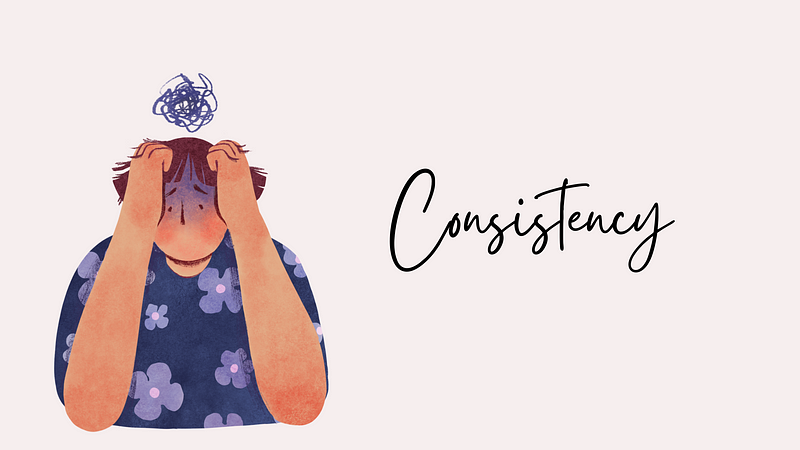Navigating Productivity with Bipolar Disorder
As a mother, freelancer, and someone diagnosed with bipolar disorder, I’ve faced challenges in maintaining consistency. Many productivity gurus emphasize the importance of consistency, often referencing books like “Atomic Habits” that advocate for small, incremental changes. But for those of us dealing with mental health issues, this approach can feel unrealistic and impossible.
There are days when these methods work wonders, but there are also extended periods when even basic tasks, like brushing teeth, become monumental challenges. We seek productivity tips because we want to be productive, to accomplish the tasks we feel we’re neglecting. However, these methods must adapt when our bodies don’t align with our minds.

Redefining Productivity
This year has been particularly challenging for me as I started medication and was diagnosed with bipolar disorder. Productivity has always been a part of my identity. I took pride in my accomplishments and the projects I could complete. But as my medication eased my mania, my productivity decreased. This forced me to redefine what productivity means and evaluate what tasks are essential to my life and my happiness.
One of the biggest lessons I’ve learned is to give myself grace when I feel like I’m failing. For instance, I had to step down from a volunteer position because I couldn’t keep up. It felt like giving up, and the organization didn’t fully understand my struggles. Letting go of things that no longer serve us is challenging, but it’s crucial to recognize that it’s okay to say no when we need to. The things that served me last year might not serve me the same this year — and that’s okay.
Asking for help is another important step. There will be times when you can’t be productive. It’s okay to ask your family for help, hire a cleaner, or order food. We often feel like we’re failing if we don’t manage everything ourselves, but that’s not true.
Work Commitments
One of the biggest struggles is dealing with periods of low productivity when tasks need to be completed. You can’t ignore work emails or stop going to work altogether. In these instances, having a solid support system is essential. You need people who can check on you, ensure you’re med-compliant, and help with daily tasks.
It’s also beneficial to have an understanding employer. You don’t have to disclose your specific disorder, but you can communicate that you’re facing challenges. Finding the right work environment is crucial. Look for employers who are compassionate and offer leave or health options for mental disabilities. While this isn’t always possible, it is something worth prioritizing if you’re able.
For me, working freelance has been a solution that’s worked well. It allows me to take on contracts that I can remove if necessary. It’s not always ideal, and I’ve had to navigate feelings of guilt when I couldn’t fulfill commitments. Freelancing allows me to adjust my hours easily and pick and choose who I work with. However, even during low productivity periods, it’s important to find ways to accomplish the bare minimum. For me, that means taking care of my kids, and myself, and ensuring I keep my job.
For work, I prioritize my primary client and let additional tasks fall behind if needed. Identifying what’s most important and working in that order is crucial. I’m honest with my team members when I’m struggling, and so far, they’ve been supportive.
Redefining Consistency
Consistency is a challenging concept, especially when dealing with mental health issues. It’s not just about showing up every day; it’s about redefining what consistency looks like during good and bad periods. We need to be honest with ourselves about whether we’re being consistent when we’re in a good place. During periods of depression or high anxiety, we need to discover new tools and redefine consistency.
Sometimes, consistency means taking care of ourselves, adhering to our medication, or reaching out to loved ones. That may be the only form of consistency we can manage at that moment, but it’s still consistency. We need to broaden our definition of consistency in a way that makes sense for our conditions.
What’s Working
One thing I’ve started doing is maintaining a list of tasks with priority tags. This helps me identify what’s essential, what’s not, and what can be delegated. For example, while laundry is essential, it can be delegated to my husband or kids. However, dropping my daughter off at school is a high-priority task that falls solely on me.
Organizing my task lists this way helps, even when I’m feeling manic. During depression, it becomes difficult to distinguish between important and non-important tasks. Having a pre-organized list makes it easier to establish priorities.
To maintain a sense of organization even during tough times, I’ve found a few tools particularly helpful. Apps like Notion and Sunsama allow me to organize my tasks visually, breaking them down into manageable chunks. When my mind is scattered, these tools help me focus on one thing at a time, ensuring I don’t get overwhelmed by the bigger picture.
Another strategy that has been useful is time-blocking. By dedicating specific times of the day to certain tasks, I create a structure that helps me stay on track. On days when I can’t follow through on everything, I allow myself to move the blocks around without guilt, acknowledging that productivity isn’t always linear.
The Importance of Routine
Establishing a daily routine has been essential to manage both productivity and mental health. Simple routines like starting the day with a cup of coffee, reading my Bible, or a short walk help ground me, especially when everything else feels out of control. These small rituals provide a sense of normalcy, acting as anchors during low periods.
However, it’s crucial to recognize that routines need flexibility. Some days, the routine might be reduced to just getting out of bed and making that coffee. That’s okay. On other days, you might feel capable of more, and that’s a win worth celebrating.
Consistency in the face of mental health challenges doesn’t look the same for everyone, and that’s something we need to embrace. It’s about finding your rhythm, no matter how slow or irregular it may be. Remember that your value isn’t tied to your productivity, and it’s okay to rest when you need to.
Navigating life with bipolar disorder has taught me that productivity isn’t just about the number of tasks completed — it’s about being mindful of our mental health and making choices that honor where we are each day.

